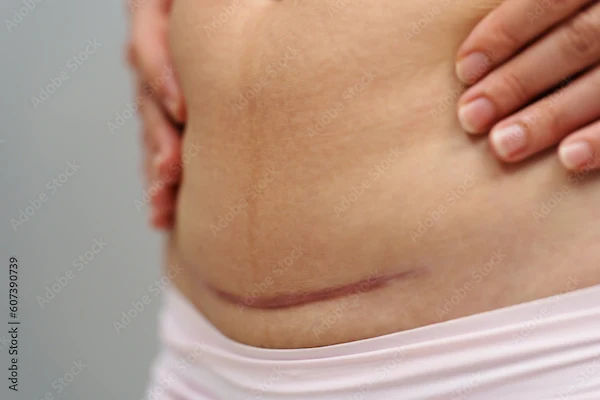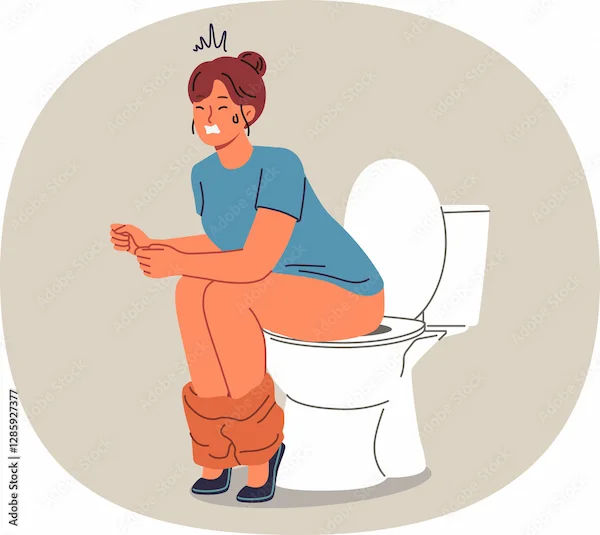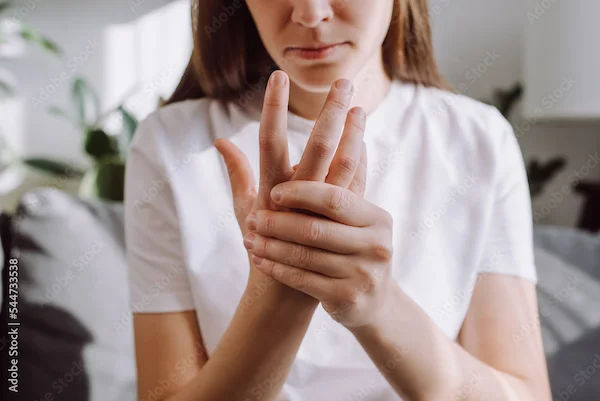No Bleeding After Hysterectomy: Know All About It
Discover why there may be no bleeding after a hysterectomy, what it means for your recovery, and when to seek medical advice. Learn everything you need to know about post-hysterectomy expectations.

Written by Dr.Sonia Bhatt
Last updated on 7th Jul, 2025

Introduction
A hysterectomy is a common surgical procedure where a woman’s uterus (womb) is removed. Depending on the type of hysterectomy, the cervix, ovaries, and fallopian tubes may also be removed. One of the most noticeable changes after this surgery is the absence of menstrual bleeding. While this is expected, some women may have concerns or questions about what is normal and what to watch out for. This article will help you understand why bleeding stops after a hysterectomy, what to expect during recovery, and when to seek medical advice.
Why Is There No Bleeding After a Hysterectomy?
Since the uterus is responsible for menstrual bleeding, removing it means periods will stop permanently. However, the type of hysterectomy you undergo determines whether you may experience light bleeding or spotting after surgery:
Total Hysterectomy (removal of the uterus and cervix): No more periods.
Partial (Supracervical) Hysterectomy (removal of the uterus but keeping the cervix): Some women may still have light spotting.
Radical Hysterectomy (removal of uterus, cervix, upper vagina, and surrounding tissues): No bleeding.
If your ovaries are also removed (oophorectomy), you will enter menopause immediately, leading to other hormonal changes.
What to Expect After a Hysterectomy?
Things to expect after a hysterectomy are:
1. Immediate Post-Surgery Recovery (First Few Weeks)
Vaginal Bleeding or Spotting: Some light bleeding or discharge (pink, brown, or light red) is normal for up to 4-6 weeks as the surgical site heals.
No Heavy Bleeding: If you experience heavy bleeding (soaking a pad in an hour), contact your doctor immediately.
Pain & Discomfort: Mild cramping is common, but severe pain should be reported.
2. Long-Term Changes (After Full Recovery)
No Periods: Since the uterus is gone, menstrual bleeding stops permanently.
Menopause Symptoms (if ovaries removed): Hot flashes, mood swings, and vaginal dryness may occur.
No Pregnancy: A hysterectomy means you can no longer conceive.
When to Be Concerned About Bleeding After Hysterectomy?
While no periods are expected, some situations require medical attention:
1. Heavy Bleeding After Surgery
If bleeding is excessive (soaking a pad every hour) or accompanied by severe pain, fever, or foul-smelling discharge, seek medical help immediately. This could indicate infection or surgical complications.
2. Unexpected Bleeding Months or Years Later
If you experience vaginal bleeding long after recovery, it could be due to:
Granulation tissue (healing tissue at the vaginal cuff)
Hormonal changes (if ovaries were kept)
Rare cases of vaginal or cervical cancer (if cervix was not removed)
Atrophic vaginitis (vaginal dryness due to low estrogen)
If you notice any bleeding after full recovery, consult your doctor to rule out serious causes.
Consult Top Specialists for Personalised Tips
Tips for a Smooth Recovery After Hysterectomy
Some of the tips for smooth recovery after hysterectomy are:
1. Follow Post-Surgery Care Instructions
Avoid heavy lifting, strenuous exercise, or sexual activity for 6-8 weeks.
Keep the surgical area clean to prevent infection.
2. Manage Menopause Symptoms (If Ovaries Removed)
Hormone replacement therapy (HRT) may help with hot flashes and vaginal dryness.
Stay hydrated, eat calcium-rich foods, and exercise to maintain bone health.
3. Watch for Emotional Changes
Some women feel emotional after a hysterectomy due to hormonal shifts.
Talking to a counsellor or joining a support group can help.
4. Maintain a Healthy Lifestyle
Eat a balanced diet rich in fibre to prevent constipation (common after surgery).
Gentle walks can improve circulation and speed up recovery.
When to Consult a Doctor?
Reach out to your healthcare provider if you experience:
Heavy bleeding (soaking pads quickly)
Severe abdominal pain or swelling
Fever or chills (signs of infection)
Foul-smelling vaginal discharge
Unexpected bleeding months/years later
Conclusion
No bleeding after a hysterectomy is normal and expected. While some spotting may occur during recovery, heavy or unexpected bleeding later on should be checked by a doctor. By following post-surgery care tips and staying aware of your body’s signals, you can ensure a smooth recovery and long-term well-being. If you have any concerns about your hysterectomy recovery, don’t hesitate to reach out to a healthcare professional for personalised advice.
Consult Top Obstetrics and Gynaecology Surgeon
Consult Top Specialists for Personalised Tips

Dr. Mona Yadav
Obstetrician and Gynaecologist
19 Years • MBBS, MD (Obstetrics & Gynaecology)
Dombivli
Nulife multispeciality, Dombivli

Dr. Parul Sharma
Obstetrician and Gynaecologist
8 Years • MBBS, MS (Obstetrics & Gynaecology)
New Delhi
THE DOCTORS NESST, New Delhi

Dr. Asha Rani Singh
Obstetrician and Gynaecologist
24 Years • MBBS DGO
Delhi
Dr Asha Rani Singh Clinic, Delhi
Dr. K Anusha
Obstetrician and Gynaecologist
4 Years • MBBS, DGO
Yemmiganur
SRINIVASAA HOSPITAL, Yemmiganur

Dr. Shyamala Devi
Obstetrician and Gynaecologist
38 Years • MBBS, MS Obstetrics & Gynaecology
Vijayawada
Sri Shivshakti Nilayam, Vijayawada
Consult Top Obstetrics and Gynaecology Surgeon

Dr. Mona Yadav
Obstetrician and Gynaecologist
19 Years • MBBS, MD (Obstetrics & Gynaecology)
Dombivli
Nulife multispeciality, Dombivli

Dr. Parul Sharma
Obstetrician and Gynaecologist
8 Years • MBBS, MS (Obstetrics & Gynaecology)
New Delhi
THE DOCTORS NESST, New Delhi

Dr. Asha Rani Singh
Obstetrician and Gynaecologist
24 Years • MBBS DGO
Delhi
Dr Asha Rani Singh Clinic, Delhi
Dr. K Anusha
Obstetrician and Gynaecologist
4 Years • MBBS, DGO
Yemmiganur
SRINIVASAA HOSPITAL, Yemmiganur

Dr. Shyamala Devi
Obstetrician and Gynaecologist
38 Years • MBBS, MS Obstetrics & Gynaecology
Vijayawada
Sri Shivshakti Nilayam, Vijayawada



